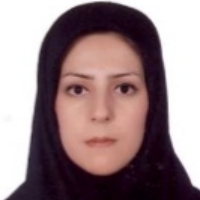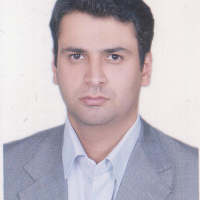The Foundation of the Evolution of Dariush Shaygan's Attitude towards Modernity
Author(s):
Article Type:
Research/Original Article (دارای رتبه معتبر)
Abstract:
Dariush Shaygan is an outstanding intellectual figure who is familiar with the traditional heritage and culture of Iranian society, and has a relatively complete knowledge of modernity and its philosophical foundations. However, what have made his thoughts remarkable are the gradual changes that have taken place in his attitude towards modernity during his intellectual life. In the first period of his intellectual life, Shaygan was strongly anti-modernist and considered it a European-centered phenomenon which was in the stage of nihilism and absurdity; and he was concerned with its dominance over Eastern culture and spirituality. Years later, he changed his views in an obvious way and recognized modernity as a superior meta-narrative, and believed that its dominance over other cultures and civilizations were inevitable. The main objective of this research is to find the underlying reasons for the transformation of Shaygan's attitude towards modernity, and his confrontation with political and social developments of his time. The perceptible transformation of his views on modernity can be seen in his books published during two time periods: a) Those written before the Islamic Revolution of Iran (e.g., “Mental Idols and Eternal Memory;” and “Asia vs. the West”; and b) books published one and two decades after the Revolution (namely, “New Enchantment,” and “Forty-piece Identity and Mobile Thinking,” In the first post-revolution decade, Shaygan was strongly influenced by the developments caused by this particularly momentous event in Iranian contemporary history; and consequently, he tried to analyze the ontological foundations of the occurrence of this astonishing revolution. During the last years of his life, the focus of his work was on the literary and cultural heritage of the East and the West, as seen in his two books entitled “In Search of Lost Spaces,” and “Five Climates of Presence: A Discussion on Iranian Poetry.” In this research, we evaluate these books by using the method of qualitative conceptual analysis.It is argued that Shaygan’s attention to Kant's approach to the critique of pure reason led him to distance himself from his previous Heideggerian interpretation of modernity. By criticizing metaphysics, Kant created a new possibility for a pluralistic design of modern thought. A possibility that could be an opportunity to break out of the impasse of modern nihilism and move to a kind of radical cognitive freedom in the context of modernity. Shaygan's attention to postmodern ideas —instead of the traditional Eastern heritage — as a new philosophical basis for overcoming Heidegger's previous Nietzschean approach, has been made possible by this re-reading of Kant's critical rationality, and perhaps by his attention to Watimo's views. The authors try to answer the following main research question: What are the reasons for the change in Shaygan's attitude towards the relationship between modernity and cultural heritage of Eastern societies, from the perspective of Heidegger-Nietzsche's view of Kant? In the hypothesis, it is postulated that the prevalence of anti-Western political radicalism in Iran showed Shaygan that Nietzsche-Heidegger's reading of Eastern heritage and the denial of modernity had no effect other than its ideological reproduction. Shaygan reconsidered the foundations of modernity in the context of a Kantian and post-Kantian pluralism. Realizing the danger of the negation of modernity, Shaygan concluded that the interaction between the Eastern traditions and modernity is inevitable. This interaction was not seen possible with the earlier approach based on the negation and reduction of modernity to nihilism. Reconsideration of Shaygan’s approach was inspired by Watimo's Kantian reading of Nietzsche; and thus, he sought to adopt a Kantian and post-Kantian approach to Eastern modernity and tradition. While modernity is universally interpreted, Eastern traditions are not considered as alternatives to modernity, but as spiritual complement to give meaning to human life in the modern age.
Keywords:
Language:
Persian
Published:
Political Quartely, Volume:52 Issue: 3, 2022
Pages:
665 to 690
magiran.com/p2576479
دانلود و مطالعه متن این مقاله با یکی از روشهای زیر امکان پذیر است:
اشتراک شخصی
با عضویت و پرداخت آنلاین حق اشتراک یکساله به مبلغ 1,390,000ريال میتوانید 70 عنوان مطلب دانلود کنید!
اشتراک سازمانی
به کتابخانه دانشگاه یا محل کار خود پیشنهاد کنید تا اشتراک سازمانی این پایگاه را برای دسترسی نامحدود همه کاربران به متن مطالب تهیه نمایند!
توجه!
- حق عضویت دریافتی صرف حمایت از نشریات عضو و نگهداری، تکمیل و توسعه مگیران میشود.
- پرداخت حق اشتراک و دانلود مقالات اجازه بازنشر آن در سایر رسانههای چاپی و دیجیتال را به کاربر نمیدهد.
In order to view content subscription is required
Personal subscription
Subscribe magiran.com for 70 € euros via PayPal and download 70 articles during a year.
Organization subscription
Please contact us to subscribe your university or library for unlimited access!




